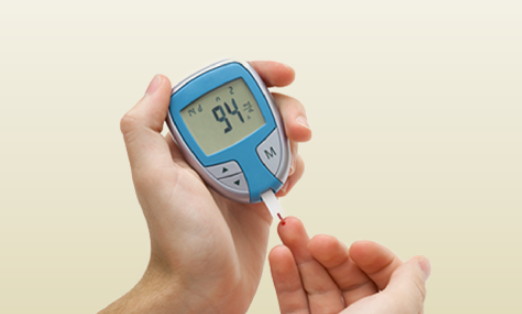A study by Indian scientists has demonstrated, accurate diagnosis of diabetes requires quantifying albumin levels in blood and its glycation – bonding of a sugar molecule to a protein, status. Diabetes diagnosis and management majorly depend upon the measurement of glycated haemoglobin or HbA1c levels.
Pune (ISJ) – A study by Indian scientists has demonstrated, accurate diagnosis of diabetes requires quantifying albumin levels in blood and its glycation – bonding of a sugar molecule to a protein, status. Diabetes diagnosis and management majorly depend upon the measurement of glycated haemoglobin or HbA1c levels.
The study was done by scientists at CSIR-National Chemical Laboratory and Chellaram Diabetes Institute, both in Pune. The study was published by American Chemical Society.
Various factors influence HbA1c levels like use of analytical methods and the presence of various clinical conditions. However, the precise mechanism by which they affect HbA1c was not well understood so far.
“Our research demonstrates that HbA1c levels are influenced by albumin abundance and its glycation status, and therefore we also recommends albumin and glycated albumin levels should be quantified in diagnosis of diabetes,” Dr Mahesh J. Kulkarni, Scientist at NCL’s Biochemical Sciences Division and the lead author of the study told Indian Science Journal.
Diabetes is a growing challenge in India with estimated 8.7% population in the age group of 20 and 70 years affected by the disease, according to World Health Organisation. The rising prevalence of diabetes and other non-communicable diseases is driven by a combination of factors – rapid urbanization, sedentary lifestyles, unhealthy diets, tobacco use, and increasing life expectancy. Much of the diabetes burden can be prevented or delayed by behavioural changes favouring a healthy diet and regular physical activity.
According to a joint study by Indian Council for Medical Research, Institute for Health Metrics and Evaluation and Public Health Foundation of India, India currently represents 49 percent of the world’s diabetes burden, with an estimated 72 million cases in 2017, which is expected to almost double 134 million by 2025. This presents a serious public health challenge to the country, with a burgeoning population.
Poorly controlled diabetes could lead to development of complications such as nephropathy, retinopathy, neuropathy and cardiovascular diseases. Therefore, good glycemic control is critical to prevent any such complications, said the study.
Glycemic status monitored by measuring blood glucose provides an instantaneous measure of its level; however, it varies throughout the day depending upon the diet, work, and antidiabetic medicines. Considering the limitations in the measurement of blood glucose, an International Expert Committee recommended the measurement of glycated hemoglobin (HbA1c), as it provides average glucose level of preceding 120 days, the lifespan of erythrocytes. HbA1c has become a gold standard for the assessment of chronic glycemic status in clinical practice. However, several studies have debated the usefulness of HbA1c because of technical challenges in precise quantification of glycemic status.
“We therefore, propose albumin and glycated albumin levels should be measured alongwith HbA1c,” said Dr Kulkarni. “To maintain normal albumin levels, it is important to maintain a healthy liver in diabetes, as albumin is produced in liver and secreted into blood plasma.
Dr Kulkarni said, they are now considering further research to discover molecules that increase albumin levels in diabetes. “However, this is a long-term goal,” he added.


